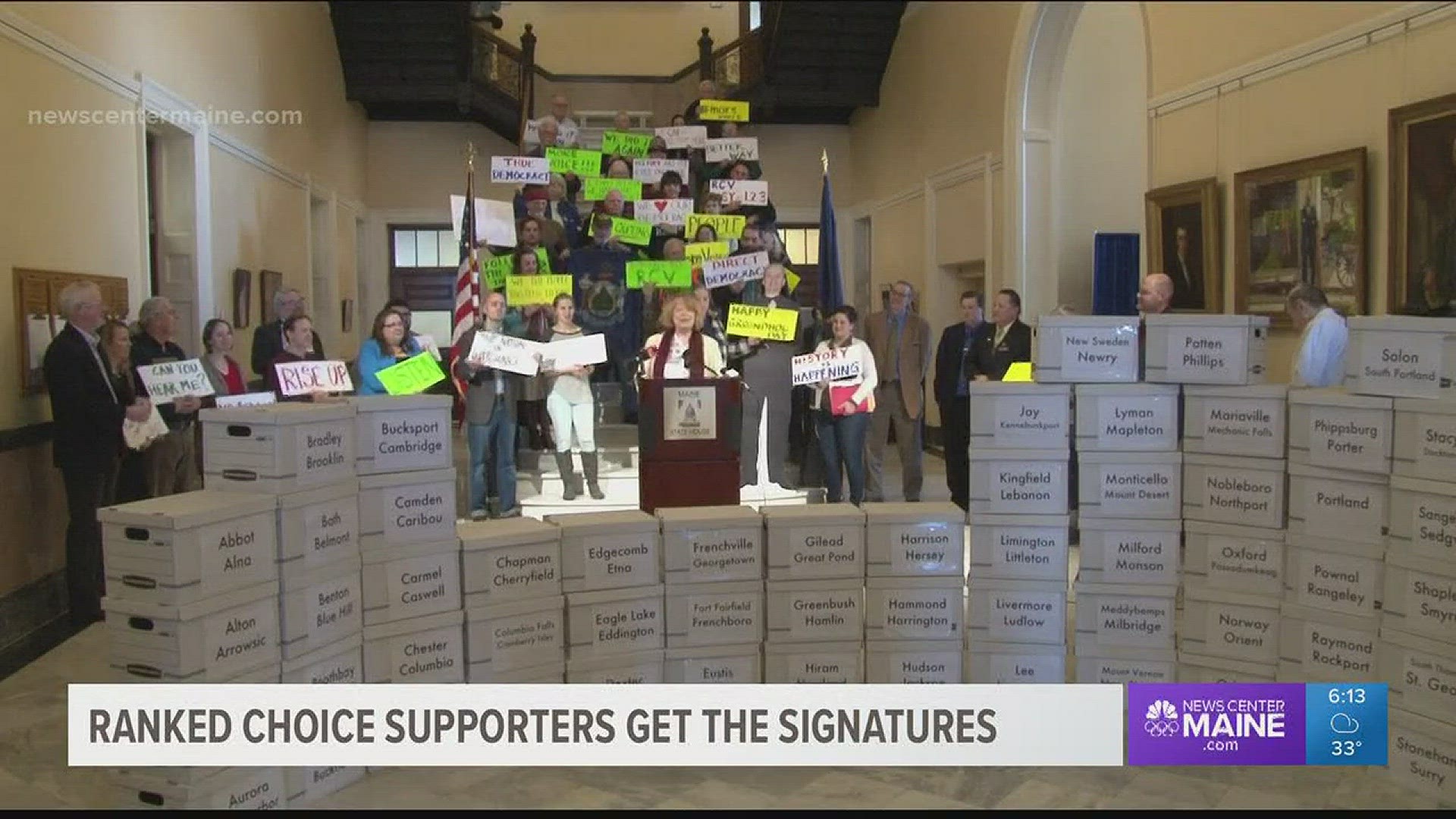AUGUSTA (NEWS CENTER Maine) — Maine’s primary elections are just over three months away, and the secretary of state says his department will need to provide voters some public education before June 12.
For the first time, those primary races will be decided by ranked-choice voting (RCV). That’s the result of a people's veto petition drive by ranked-choice supporters.
Secretary of State Matt Dunlap announced Monday that the petition is valid. It blocks a law passed by the state legislature last year to delay or potentially repeal ranked choice, which was passed by Maine voters in 2016.
It forces a new referendum vote on the issue, but it also means the controversial voting method will be used in June for the primaries for gubernatorial, legislative and congressional races.
Secretary Dunlap said Monday he and local election officials would have a very short time to prepare a whole new method for voting and counting the ballots. Dunlap said it will be the first time in the country that RCV will be used in a statewide election.
"We have our work cut out for us," he said.
Ranked choice requires voters to rank their preferences for multiple candidates on the ballot. If no candidate gets 50 percent of the votes on the first count, the lowest vote-getter is eliminated and ballots are recounted until someone gets more than 50 percent.
Votes are counted using a special computer program, and Dunlap said he is developing a plan for the state to acquire the program and train state and local staff how it works. He said one potential scenario would have an initial vote count done at local polling places, but then all the computer records and hand-counted ballots would be collected and taken to Augusta, where a central computer would handle the ranked-choice program to do the final counting.
Dunlap said that process of collecting, transporting and counting ballots could take two days. And he warned that voters will need to be told in advance there is likely to be a time delay in determining the winners.
"The worst thing we can give people after the election is silence," Dunlap said. "If people don’t know what’s going on and we’re not talking, then there will be uncertainty about the integrity of the election and we can’t have that."
Much of the burden for explaining things to voters will fall on town and city clerks. Cumberland clerk Tammy O’Donnell said her staff will need to get trained first so that they can then explain to voters how to use the unfamiliar system.
"I fully expect it to be chaotic, yes, and a challenge, yes. I would be surprised if it were not," she said.
However, O’Donnell said she had great confidence in the secretary of state’s staff to develop and manage the ranked-choice process.
Former state Sen. Dick Woodbury, who led the campaign to pass ranked-choice voting, said Tuesday he thinks the system will work smoothly.
"This is not a complicated thing to do," Woodbury said. "They’ve been using it in Portland, [they] used it in other municipalities around the country, so no, this is not going to be chaotic. It will be transformational for Maine."
O’Donnell said they don’t have much time to get things ready. She said absentee ballots using RCV must be available by May 12, which will be 30 days before the primary election.

